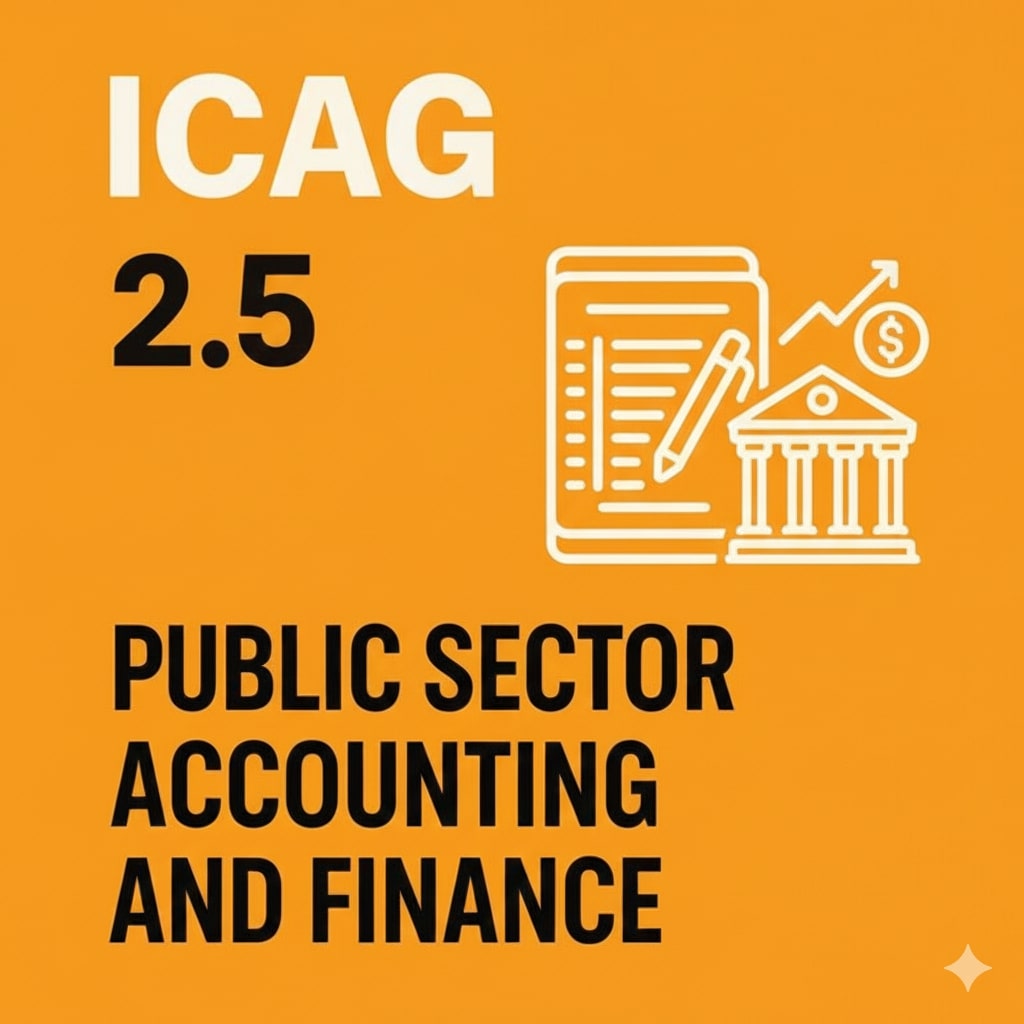The Public Sector Accounting and Finance module (Paper 2.5) is part of the Skills Level (Level 2) in the ICAG professional qualification syllabus. It builds on foundational concepts from the Knowledge Level, focusing on applying accounting and finance techniques in the public sector context to support financial reporting, budgeting, procurement, risk management, and accountability in government and related entities. Below is the syllabus coverage in tabular form, including main topics and their approximate weightings (guiding study time and exam mark allocations).
| Syllabus Topic | Description | Weighting (%) |
|---|---|---|
| A. Public sector financial reporting in Ghana | Outlines the key characteristics of public sector budgeting, execution, accounting, and reporting in Ghana, including the relationship between planning and budgeting, processes (formulation, authorization, approval, execution, monitoring), legislative requirements (e.g., Public Financial Management Act), roles of key officers (e.g., Minister of Finance, Controller and Accountant General), sources of finance (tax, non-tax, grants, borrowing), and systems like GIFMIS and Treasury Single Account. | 15 |
| B. Conceptual framework for general purpose financial reporting by public sector entities | Explains the conceptual framework for financial reporting in the public sector, including principles for preparing and presenting general purpose financial statements by public sector entities under IPSAS or equivalent standards, emphasizing qualitative characteristics, elements, recognition, and measurement. | 15 |
| C. Public financial management systems (e.g., Public Expenditure and Financial Accountability (PEFA) framework) | Explains public financial management systems such as the PEFA framework, including its seven pillars, assessment methodology, internal control effectiveness, analysis of PFM strengths and weaknesses, and concepts like value for money in public spending. | 10 |
| D. Accounting policies for both cash and accrual bases in public sector | Explains accounting policies and bases in the public sector, including cash basis accounting, modified cash basis, accrual basis, their applications, advantages, limitations, and transitions between bases, aligned with relevant standards and practices. | 10 |
| E. Preparation of financial statements for public sector entities | Prepares financial statements for public sector entities in line with generally accepted accounting practices (e.g., IPSAS), including statements of financial position, performance, cash flows, changes in net assets/equity, and notes, incorporating budgeting and reporting requirements. | 20 |
| F. Evaluation of financial position, performance, and prospects of public sector entities | Evaluates the financial position, performance, and prospects of public sector entities using financial ratios, trend analysis, benchmarking, and other qualitative information to assess sustainability, efficiency, and accountability. | 10 |
| G. Rules and procedures in public procurement | Explains the rules and procedures in public procurement, including legislative frameworks (e.g., Public Procurement Act), procurement methods, tendering processes, evaluation criteria, contract management, and compliance to ensure transparency, fairness, and value for money. | 10 |
| H. Public financing initiatives: Public-Private Partnership and Public-Public Partnership | Explains public financing initiatives such as Public-Private Partnerships (PPP) and Public-Public Partnerships, including types/forms, accounting treatments (e.g., recognition of assets, liabilities, revenues, expenses), risks, benefits, and regulatory considerations. | 10 |


